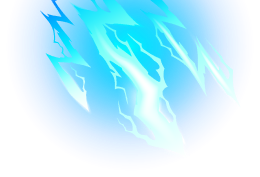The blockchain sector is buzzing with competition as projects vie to enhance transaction speeds, slash fees, and expand scalability. In this race, Litecoin and BlockDAG (BDAG) are pivotal players, each bringing unique solutions to the table. While Litecoin continues to be a steadfast competitor with its solid foundation, BlockDAG is swiftly capturing the spotlight with its rapid transaction processing and efficient structure. This analysis pits the two against each other to spotlight BlockDAG’s edge in scalability, speed, and cost-effectiveness.
Launched in 2011 by Charlie Lee, Litecoin was crafted to outpace Bitcoin. It operates on the Proof-of-Work (PoW) consensus mechanism paired with the Scrypt hashing algorithm, easing mining efforts and accelerating block creation. Litecoin produces a new block every 2.5 minutes, handling 56 transactions per second (TPS)—more efficient than Bitcoin, yet still hampered by scalability limits.
Although Litecoin boasts quicker block times and modest transaction fees ranging from $0.02 to $0.05, its linear blockchain design restricts overall capacity. Currently priced at $76.81 per LTC with a circulating supply of 75.18 million LTC, Litecoin’s market cap stands at around $5.77 billion. It has broad support from thousands of merchants and extensive integration across various platforms, but its scalability struggles due to its block size and sequential processing.

In sharp contrast, the BlockDAG Network employs a Directed Acyclic Graph (DAG) structure that processes transactions concurrently, not sequentially. This advanced architecture elevates throughput, reaching up to 10,000 TPS and drastically outperforming Litecoin’s 56 TPS.
BlockDAG’s design enables it to handle vast transaction volumes simultaneously, scaling efficiently without succumbing to network congestion. Transactions confirm nearly instantly, typically within 1-2 seconds, granting BlockDAG a significant timing advantage over Litecoin’s 2.5-minute block time.
Moreover, BlockDAG’s framework significantly reduces transaction costs, with fees averaging less than $0.001 each, making it over 97% more affordable than Litecoin. This cost reduction is crucial for high-frequency transaction applications such as digital payments or decentralized apps, ensuring affordability even during peak network loads.
Regarding decentralization, BlockDAG mitigates centralization risks typical of PoW systems by distributing transaction validation across a broader network of nodes, fostering a more decentralized and secure environment. This structure avoids the bottlenecks common in traditional blockchain models, thereby enhancing both scalability and security.
BlockDAG’s recent presale, which raised over $122.5 million, reflects a strong market interest and optimism about its capacity to transcend current blockchain limitations. This presale is fueling network expansion, strategic partnerships, and faster adoption rates. With BlockDAG’s increasing prominence, it is well-equipped to serve industries demanding swift, cost-effective transaction processing, such as finance, gaming, and supply chain logistics.
Why BlockDAG Outshines Litecoin in Blockchain Technology
BlockDAG emerges as the clear frontrunner against Litecoin, offering superior scalability, faster speeds, and greater cost efficiency. Despite Litecoin’s solid history and extensive user base, its limitations in scalability and higher transaction fees make it less ideal for high-volume needs. BlockDAG’s cutting-edge architecture presents a more effective solution for businesses and developers in search of dependable, expansive infrastructure.
Those focusing on swiftness and affordability will find BlockDAG to be the optimal choice. Capable of processing thousands of transactions per second while keeping fees minimal and confirmation times nearly instantaneous, BlockDAG positions itself as a formidable force in the blockchain arena. With the increasing demand for scalable blockchain technologies, BlockDAG is perfectly poised to respond effectively.
Concluding Insights
While Litecoin has its merits as a stable and reliable technology, it falls behind the robust capabilities of BlockDAG’s parallel processing power. BlockDAG’s dedication to scalability and efficiency not only sets it apart but also significantly benefits projects demanding quick and cost-effective transaction processing.
As the blockchain industry evolves, BlockDAG’s advanced strategies are likely to redefine industry expectations, shaping the future of how digital transactions are conducted across networks.
Presale: https://purchase.blockdag.network
Website: https://blockdag.network
Telegram: https://t.me/blockDAGnetworkOfficial
Discord: https://discord.gg/Q7BxghMVyu


